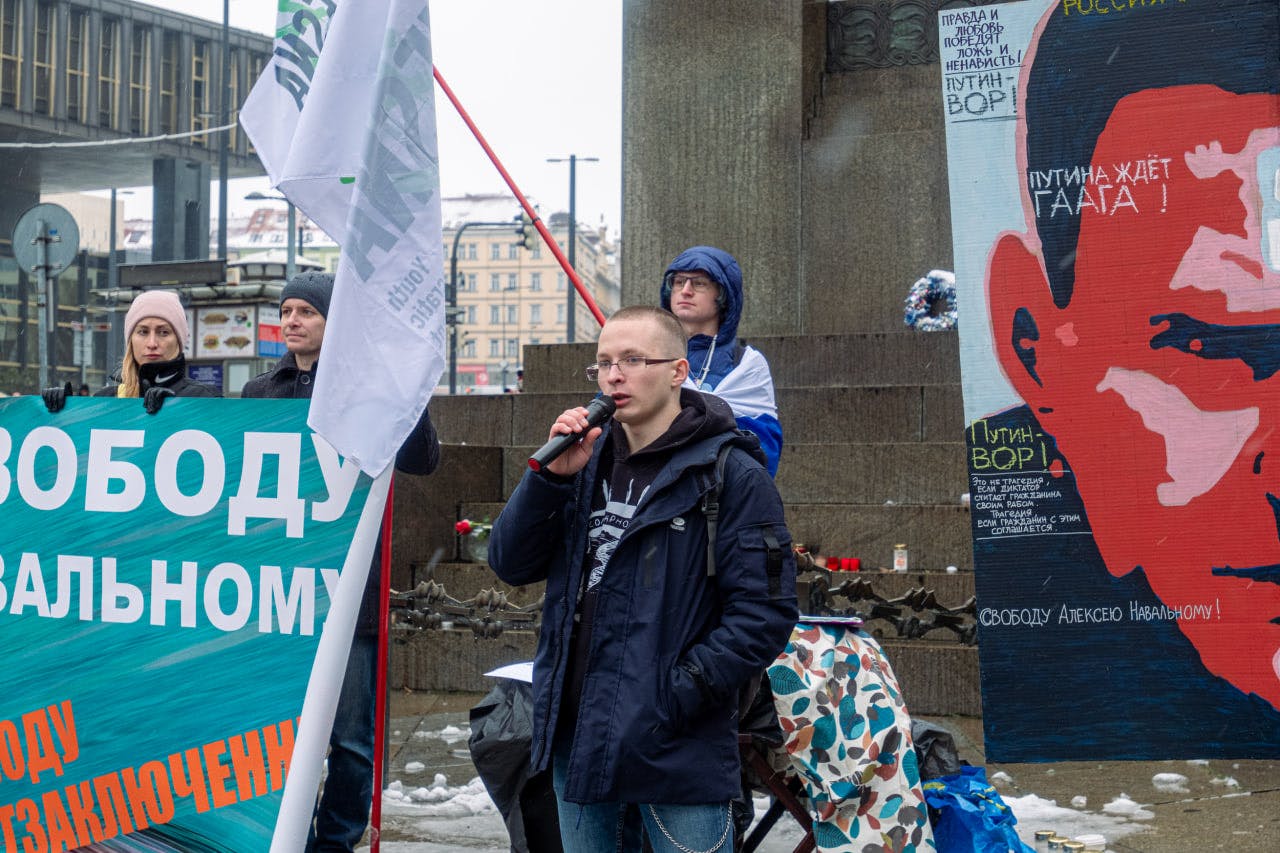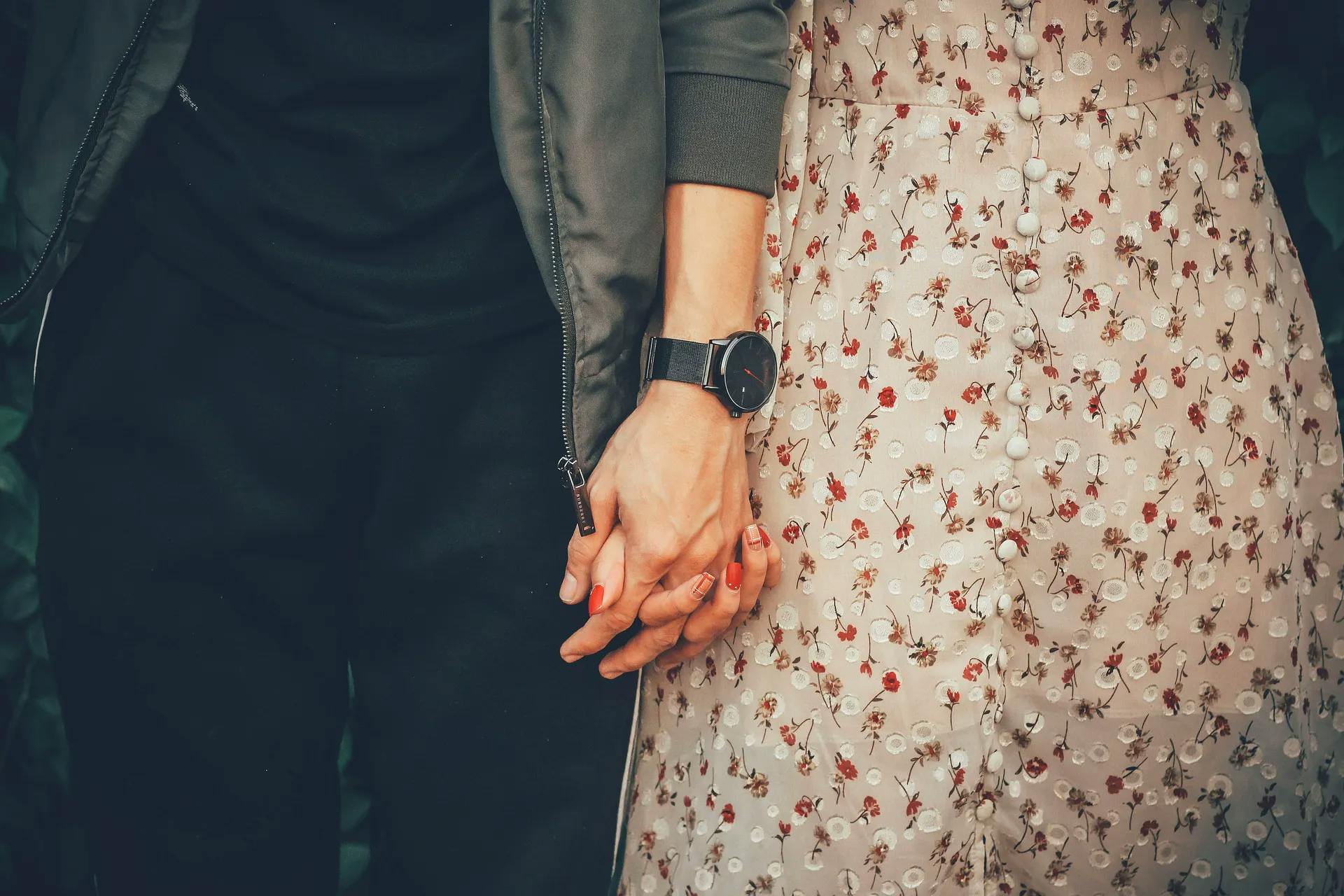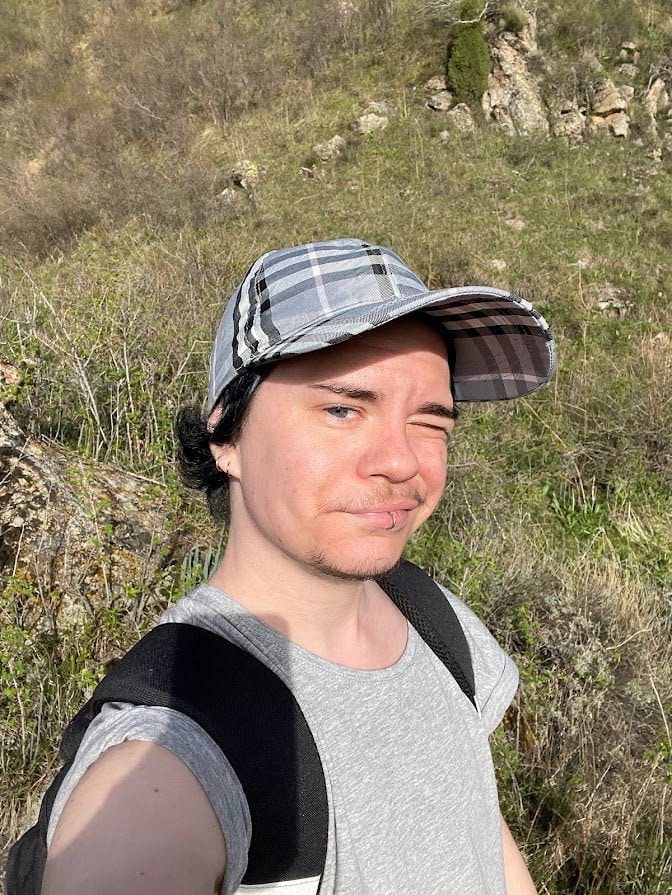Kysh (Andrey)
...do not give up and do not despair, do what you think is the right thing to do. Russia will definitely be free.


Ivan is 30 years old and from Kursk Oblast. He emigrated from Russia in October 2022 and currently resides in Bavaria.
Tell us about yourself. What did you do before the war and before moving to Germany?
I have two bachelor’s degrees from Kursk State Medical University in Clinical Psychology and the Moscow Institute of Psychoanalysis in Leadership in the Management of Civic and Community Initiatives.
I left Russia in October 2022. Aside from concerns about my own safety, the inability to do social work was also a factor.
For nine years in Russia, I ran an NGO that was involved in cultural and artistic projects. While I was in Russia, I was constantly asked to support the war through volunteer actions and events. I refused to do that, which created confusion and resentment. Eventually, I believe an ultimatum would have been made: either support the war or face the consequences. Among other things, I didn't want to set anyone else up, so I resigned and left.
In addition to running an NGO, I worked as a volunteer medical psychologist with the elderly at the War Veterans Hospital. I performed neuropsychological diagnostics, counseled patients using a logotherapeutic approach, and helped develop coping strategies for depressive episodes.
Please tell us about your volunteer project. Why do you believe this initiative is important?
In Germany, I started a new project to provide free psychological support to anti-war activists who have been forced to relocate to Germany. I even won a grant from Freies Russland's Accelerator of Anti-War Initiatives.
What is the purpose of the project?
My goal is to provide free psychological support groups for forced relocators in both online and offline formats. I'd like for our mutual support to result in some kind of synergy and for us to become a community capable of developing our own ideas and activities.
What motivates you?
My own goal is to build communities and ecosystems capable of fighting authoritarianism. Russia is currently fighting not only an aggressive war against Ukraine but also a battle against democracy and freedom. I want to live in a free world, which is why doing something, even if it is gratuitous, is so important to me.
The war has been going on for over yeah and half now. How has your project changed: tasks, priorities, what has become more relevant, or, on the contrary, what has lost its meaning?
The war had no effect on my project; it was created as a result of the war. However, the war became the reason for my forced emigration, and it erased all of my work in uniting public initiatives in the region, causing me to quit engaging in all projects in Russia. Also, I got eventually disappointed in the idea of remaining at least somewhat respected by the authorities in order to do independent projects. It is now pointless to work on projects that unite local communities in Russia; the main goal is to end the war and allow society to acknowledge its own responsibility. I tried to stay in Russia as long as possible, speaking out on multiple platforms about my opposition to the war and support for democratic values. This is why the project on psychological support for relocators is an initiative that I am developing from scratch in a new country, with a different structure for the functioning of social projects, ways of negotiating with partners, and criteria for evaluating social effects and results.
What plans do you have for your project and yourself?
In the future, the project should not only benefit the diaspora psychologically but also promote collaborative action. So far, this qualitative transformation has been postponed since it takes longer and is more difficult to negotiate (but more reliable) with local organizations and institutions. We're specifically discussing the large offline community meeting at which I planned to create a mastermind group.
I have no intention of returning to Russia. I've been working to save this madhouse for a long time, and I believe I've fulfilled my moral obligation. The situation will not change for a long time, but I am always willing to help from abroad in the growth of civil society in Russia, the acknowledgment of historical guilt, and the finding of effective ways to cure this guilt through active repentance.
How do you deal with mental stress and burnout?
Of course, the trauma of emigrating put me under a lot of psychological stress at first. The most important here, as with any personal growth, is understanding and acceptance of one's own choice. Now I feel mentally secure: I'm learning German, traveling, expanding my career opportunities, and engaging in a local volunteer activity. Working with stress, psychological trauma, and burnout is highly individual, therefore I can't give you a formula here, but I can invite you to free group consultations that I organize in the project. You can also text me personally, and all the consultations for relocators are free of charge.
Tell us about any memorable moments, pleasant or not so much.
I have had lots of memorable moments in Russia. It is the country where I was born, grew up, received an education, made friends, fell in love for the first time, and spent plenty of time doing community service. Here, I too suffered discrimination, threats from the government and their criminal authorities, fines, illegal detention, and arrest. I remember one incident when I was detained for 24 hours. The regional police chief arrived at my cell because media reports about my detention suddenly made me an important figure in their department. I must say that the cops purposefully placed me in a cell with former murderers and homeless people in order to teach me a lesson. Despite the fact that I seem to be a “soft boy” I made contact with them and we had no issues. So, after his monologue on Navalny, this chief said: “There, look around, these are your people.” He probably meant I was promoting democracy because I lived in a golden palace. But I grew up among all the homeless, thieves, drunks, drug addicts, and murderers who filled the streets in my youth. I was amused by his phrase back then, and I realized that such stupid people would never break me and take away my freedom, even if they put me in jail.
Was there ever a moment when you wanted to quit? How did you get over this feeling?
I didn't only have one moment when I quit, I literally gave up everything and left. It was difficult to adjust to daily living in Germany at first, so there was no time for social engagement. But my colleague Sergei, who also left because he was against the war, convinced me to apply for the accelerator of anti-war activities, and he kept saying that we now live in a free country where anything is possible and everything would work out. So it did. I wish Russia could be a country where people are not scared to express their thoughts, solutions, and ambitions.
What do you wish for other volunteers and activists?
They say that the primary issue in Russia now is the people's inability to unite. If only we could all work together to defeat our own enemy. The irony is that the same issue exists in political emigration. It falls apart not only because of different worldviews. People are mostly concerned with their own survival, not with a general agenda: they don't attend protests, don't join anti-war movements, and don't initiate any projects. So I'd say: “Stop relaxing and adapting - take action!”. Action is the most effective approach to defeating apathy.
...do not give up and do not despair, do what you think is the right thing to do. Russia will definitely be free.

...No one could ever imagine that literally tomorrow you would have to turn your life around 180 degrees and leave for a foreign country.

I still believe that someday the LGBT parades during Pride Month will be celebrated on the same level as Labour Day parades in May.

Our media platform would not exist without an international team of volunteers. Do you want to become one? Here's the list of currently opened positions:
Is there any other way you would like to contribute? Let us know:
We talk about the current problems of Russia and of its people, standing against the war and for democracy. We strive to make our content as accessible as possible to the European audience.
Do you want to cooperate on content made by the Russian standing against the war?
We want to make people of Russia, who stand for peace and democracy, heard. We publish their stories and interview them in Ask a Russian project.
Are you a person of Russia or know someone who would like to share their story? Please contact us. Your experience will help people understand how Russia works.
We can publish your experience anonymously.
Our project is ran by international volunteers - not a single member of the team is paid in any way. The project, however, has running costs: hosting, domains, subscription to paid online services (such as Midjourney or Fillout.com) and advertising.
Our transparent bank account is 2702660360/2010, registered at Fio Banka (Czech republic). You can either send us money directly, or scan one of the QR codes bellow in your banking app:




Note: The QR codes work only when you scan them directly from your banking app.
Russia started the war against Ukraine. This war is happening from 2014. It has only intensified on February 24th 2022. Milions of Ukrainians are suffering. The perpetrators of this must be brought to justice for their crimes.
Russian regime tries to silence its liberal voices. Russian people against the war exist - and the Russian regime tries its best to silence them. We want to prevent that and make their voices heard.
Connection is crucial. The Russian liberal initiatives are hard to read for European public at times. The legal, social and historical context of Russia is not always clear. We want to share information, build bridges and connect the liberal Russia with The West.
We believe in dialogue, not isolation. The oppositional powers in Russia will not be able to change anything without the support of the democratic world. We also believe that the dialogue should go both ways.
The choice is yours. We understand the anger for the Russian crimes. It is up to you whether you want to listen to the Russian people standing against this.